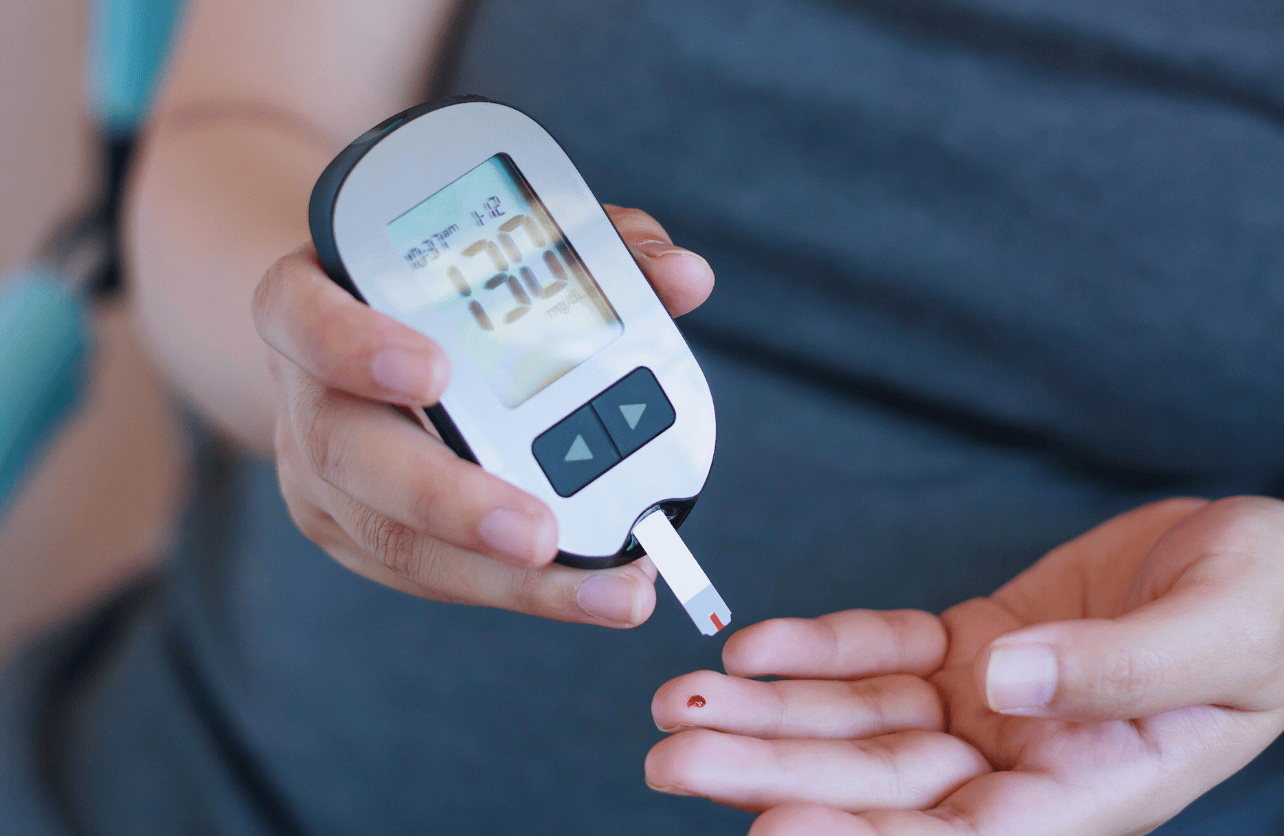Blood Sugar 101: Understanding the Basics of Glucose and Health

Maintaining healthy blood sugar levels is crucial for overall well-being and plays a significant role in preventing chronic diseases such as diabetes, heart disease, and stroke. Whether you’re seeking to improve your health, manage an existing condition, or simply understand how your body functions, comprehending the fundamentals of blood sugar is essential. This comprehensive guide will delve into what blood sugar is, how it’s regulated, factors affecting it, signs of imbalance, and strategies for maintaining optimal levels.
What is Blood Sugar?
Blood sugar, also known as blood glucose, refers to the concentration of glucose present in the bloodstream. Glucose is a simple sugar derived from the carbohydrates in foods. It serves as the primary source of energy for your body’s cells, powering everything from muscle contractions to brain functions.
The Role of Glucose
Glucose is vital for:
- Energy Production: Cells convert glucose into energy through a process called glycolysis, fueling various bodily functions.
- Brain Function: The brain relies heavily on glucose for cognitive processes such as thinking, memory, and learning.
- Metabolic Processes: Glucose is involved in synthesizing important biomolecules, including nucleic acids and amino acids.
How is Blood Sugar Regulated?
Blood sugar regulation is a complex process managed primarily by the hormone insulin, produced by the pancreas.
The Pancreas and Insulin
- Insulin: Released by the pancreas in response to rising blood glucose levels, insulin facilitates the uptake of glucose by cells, thereby lowering blood sugar.
- Glucagon: Another hormone produced by the pancreas, glucagon works antagonistically to insulin by signaling the liver to release stored glucose, increasing blood sugar levels when they are too low.
The Liver’s Role
The liver acts as a glucose reservoir:
- Glycogenesis: The liver stores excess glucose as glycogen when blood sugar levels are high.
- Glycogenolysis: When blood sugar drops, the liver breaks down glycogen back into glucose to maintain steady levels.
Feedback Mechanism
A feedback loop ensures blood sugar remains within a narrow range:
- Post-Meal: Blood sugar rises, prompting insulin release to promote glucose uptake by cells.
- Between Meals: Blood sugar levels decline, triggering glucagon release to release glucose from the liver.
Factors Affecting Blood Sugar Levels

Several factors influence blood sugar levels, including lifestyle choices, physiological conditions, and external stressors.
Diet
- Carbohydrate Intake: Foods high in carbohydrates (sugars and starches) directly impact blood glucose levels.
- Glycemic Index: The rate at which different carbohydrates raise blood sugar varies; high glycemic index foods cause rapid spikes, while low glycemic index foods result in gradual increases.
Physical Activity
- Exercise: Physical activity increases insulin sensitivity and facilitates glucose uptake by muscles, lowering blood sugar levels.
- Sedentary Lifestyle: Lack of exercise can lead to insulin resistance, making it harder for cells to absorb glucose.
Stress
- Hormonal Impact: Stress hormones like cortisol and adrenaline can increase blood sugar by promoting glucose release into the bloodstream.
- Chronic Stress: Prolonged stress can contribute to insulin resistance and elevated blood sugar levels.
Illness and Medications
- Infections: Illnesses can disrupt blood sugar regulation due to the body’s increased demand for energy.
- Medications: Certain drugs, such as corticosteroids and some antidepressants, can raise blood sugar levels.
Sleep
- Quality and Quantity: Poor sleep can impair insulin sensitivity and increase hunger hormones, leading to elevated blood sugar levels.
- Sleep Disorders: Conditions like sleep apnea are linked to insulin resistance and higher blood glucose.
Signs and Symptoms of High and Low Blood Sugar
Recognizing the signs of blood sugar imbalance is crucial for timely intervention.
High Blood Sugar (Hyperglycemia)
Occurs when blood glucose levels exceed normal ranges. Common causes include excessive carbohydrate intake, insufficient insulin, or stress.
Symptoms:
- Frequent urination
- Increased thirst and dry mouth
- Fatigue and weakness
- Blurred vision
- Headaches
- Unexplained weight loss (in diabetes)
Severe Symptoms:
- Ketoacidosis (in type 1 diabetes)
- Hyperosmolar hyperglycemic state (in type 2 diabetes)
Low Blood Sugar (Hypoglycemia)
Occurs when blood glucose levels fall below normal. Common triggers include skipping meals, excessive insulin, or intense exercise.
Symptoms:
- Shakiness and trembling
- Sweating and chills
- Irritability or mood swings
- Dizziness or lightheadedness
- Hunger pangs
- Rapid heartbeat
Severe Symptoms:
- Confusion or difficulty concentrating
- Seizures
- Loss of consciousness
Health Implications of Blood Sugar Imbalance
Prolonged blood sugar imbalances can lead to serious health complications.
Chronic High Blood Sugar
- Diabetes: Persistent hyperglycemia is a hallmark of diabetes, a chronic condition affecting millions worldwide.
- Cardiovascular Disease: High blood sugar can damage blood vessels and nerves, increasing the risk of heart disease and stroke.
- Neuropathy: Nerve damage can lead to pain, tingling, or numbness, particularly in the extremities.
- Kidney Damage: Hyperglycemia can impair kidney function, potentially leading to kidney failure.
- Eye Damage: Elevated blood sugar levels can cause diabetic retinopathy, leading to vision loss.
Chronic Low Blood Sugar
- Cognitive Impairment: Severe hypoglycemia can affect brain function, leading to memory issues and impaired judgment.
- Increased Risk of Accidents: Low blood sugar can cause dizziness and confusion, heightening the risk of falls and accidents.
- Mood Disorders: Fluctuating blood sugar levels can contribute to anxiety and depression.
Strategies to Maintain Healthy Blood Sugar Levels
Implementing healthy lifestyle choices can help regulate blood sugar and prevent imbalances.
Balanced Diet
- Carbohydrate Management: Monitor and control carbohydrate intake to prevent spikes and dips in blood sugar.
- Fiber-Rich Foods: Incorporate vegetables, whole grains, and legumes to slow glucose absorption.
- Healthy Fats and Proteins: Include sources like nuts, seeds, fish, and lean meats to stabilize blood sugar.
- Regular Meal Timing: Eating at consistent times helps maintain steady blood glucose levels.
Regular Physical Activity
- Exercise Routine: Engage in at least 150 minutes of moderate-intensity aerobic exercise per week, along with strength training.
- Active Lifestyle: Incorporate physical activity into daily routines, such as walking, cycling, or taking the stairs.
Stress Management
- Relaxation Techniques: Practice mindfulness, meditation, or deep breathing exercises to reduce stress hormones.
- Adequate Rest: Ensure sufficient sleep to support hormonal balance and insulin sensitivity.
Monitoring and Medical Support
- Blood Glucose Monitoring: Regularly check blood sugar levels to detect and address imbalances promptly.
- Medication Adherence: Take prescribed medications as directed by healthcare providers and consider inquiring about supplements that can help regulate blood sugar, such as berberine or inositol capsules.
- Regular Check-ups: Schedule routine appointments to monitor health and adjust treatment plans as needed.
Healthy Sleep Habits
- Consistent Sleep Schedule: Maintain regular sleep patterns to support metabolic health.
- Sleep Environment: Create a comfortable and restful sleep environment, free from disturbances.
Frequently Asked Questions
What is the normal range for blood sugar levels?
Normal fasting blood sugar levels range from 70 to 99 mg/dL (milligrams per deciliter). After eating, levels typically rise to less than 140 mg/dL.
How often should I check my blood sugar?
Frequency depends on individual health conditions. People with diabetes may need to check multiple times a day, while others may only need periodic testing based on their healthcare provider’s advice.
Can diet alone manage blood sugar levels?
While diet plays a significant role in blood sugar management, combining it with regular exercise, proper sleep, and, if necessary, medication offers the most effective results.
What foods help lower blood sugar levels?
Foods high in fiber, such as vegetables, whole grains, and legumes, as well as lean proteins and healthy fats, can help stabilize blood sugar levels.
Is it possible to prevent diabetes by managing blood sugar?
Yes, maintaining healthy blood sugar levels through a balanced diet, regular exercise, and a healthy lifestyle can reduce the risk of developing type 2 diabetes.
Building a Stronger You
Supplement Institute is the fruit of extensive online publishing experience, spanning the breadth of SEO strategies to the nuances of paid advertisements. Our journey, marked by significant achievements and learning moments, inspires our core mission: to empower our readers with an abundance of information. By sharing insights and key learnings, we aim to provide you with the knowledge needed to navigate the complex world of supplements, helping you make well-informed decisions for your health and well-being. Welcome to Supplement Institute, where information is your greatest supplement.